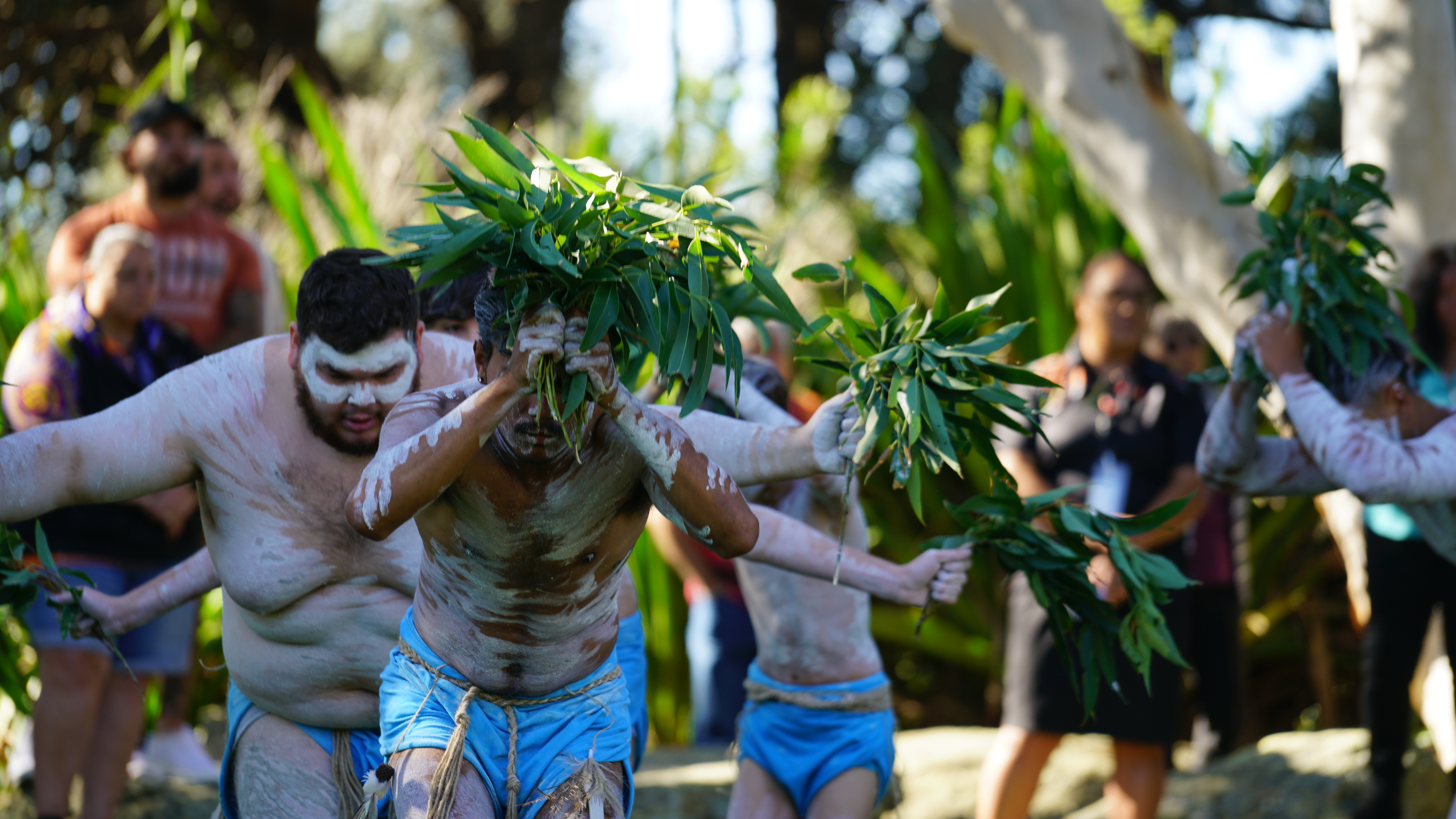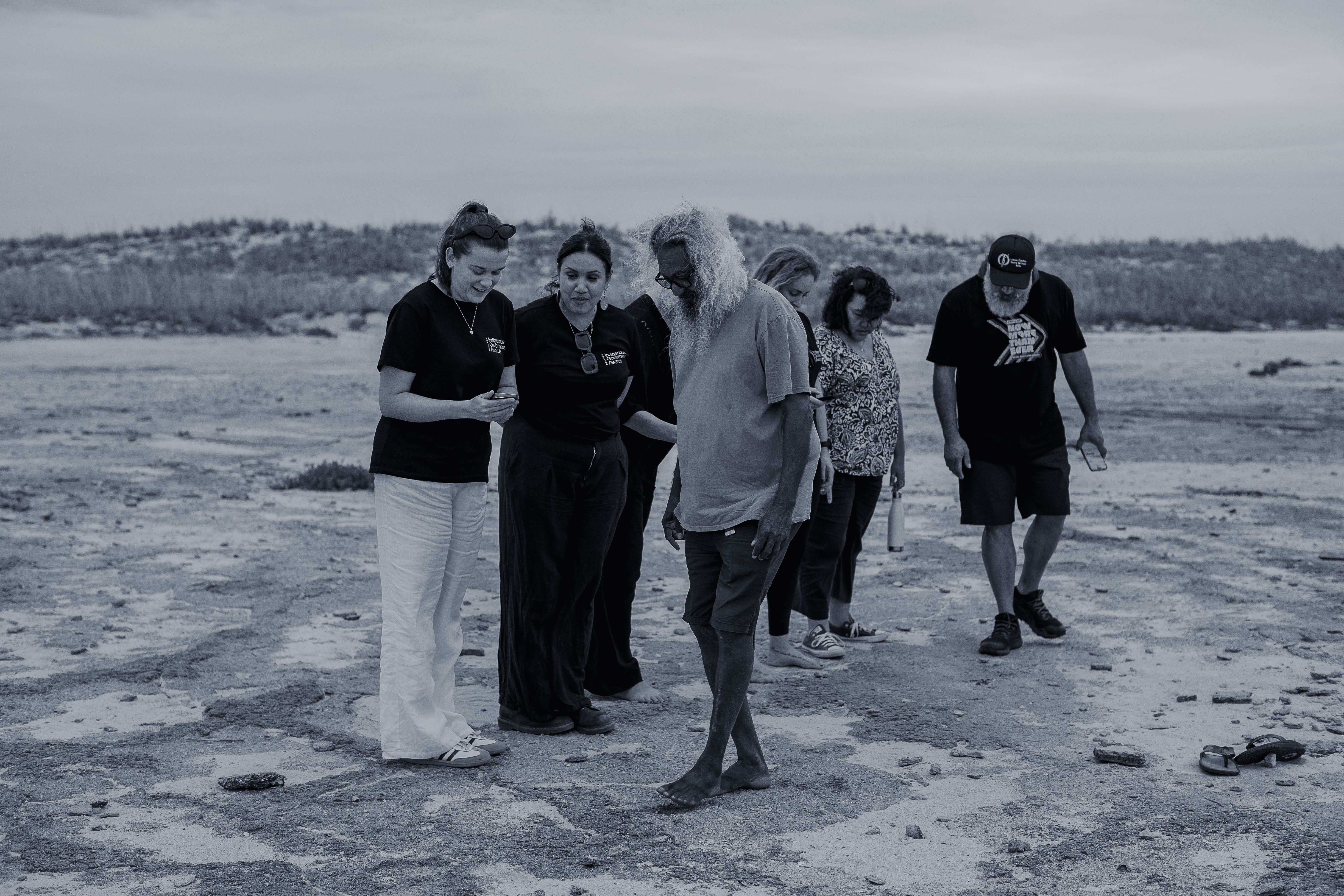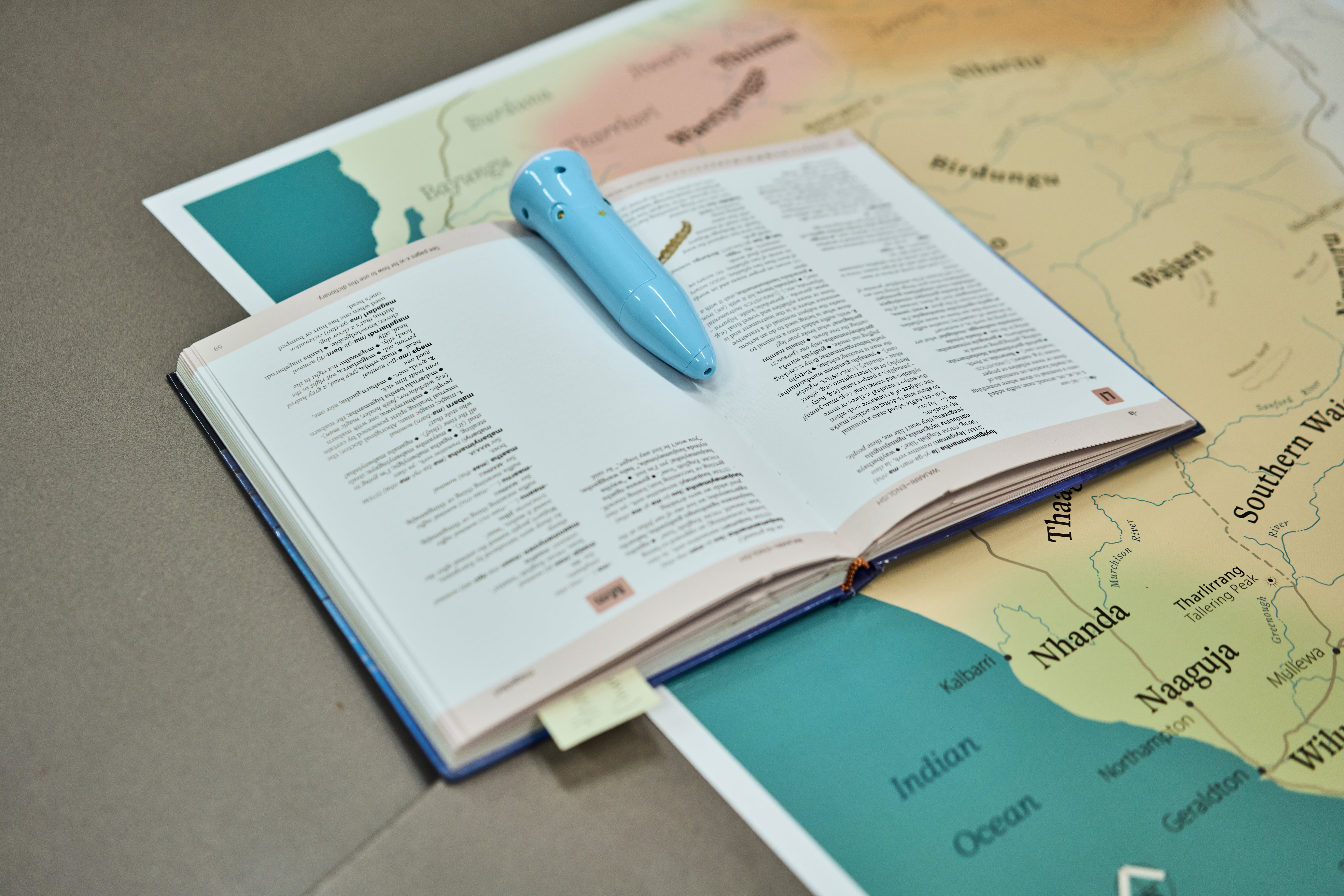To help Aboriginal and Torres Strait Islander corporations understand what Data Sovereignty means and why it matters...
ALPA is a not-for-profit organisation committed to advancing the quality of life of Indigenous Australians through business enterprise and service delivery.
To strengthen communities, preserve cultural traditions, and create sustainable opportunities for Aboriginal and Torres Strait Islander peoples.
East Arm, NT, Larrakia Country
Northern Territory, Queensland
Business and economic development; Community services
- Community controlled
- Corporation
- Incorporated under the CATSI Act
- Highly Rated (2012) Category A: outstanding example of Indigenous Governance in an Indigenous incorporated organisation
Most recent update – October 2024.
About
ALPA is the largest independent Aboriginal Corporation in Australia, operating across twenty-seven remote locations in the Northern Territory and North Queensland. ALPA was formed in 1972 as a collective of seven community-controlled stores. Today, ALPA is a successful retail enterprise owned by Yolŋu members and governed by a Yolŋu board of directors.
ALPA provide a wide range of remote retailing, community service program delivery, enterprise, and economic development and corporate services. By generating surplus through economic independence, ALPA are able to invest in benevolent funds for Yolŋu communities.
Board of directors
ALPA is led by an all-Yolŋu board of directors from each of ALPA’s five communities: Galiwin’ku, Gapuwiyak, Milingimbi, Minjilang and Ramingining. Two directors are nominated from each community – one a traditional landowner representative nominated by the community’s traditional owners, and one a community member representative nominated by each Community Advisory Committee (CAC).
There is a CAC in each of ALPA’s communities made up of leaders across family groups. The CAC are uniquely positioned to advise ALPA on key areas of community-based concern. Each CAC is representative of the family groups in that community.
All board directors follow ALPA’s Directors Duties and Code of Conduct. This document sets out the responsibilities and expectations of individual directors. Every director agrees to abide by the duties and code of conduct when they’re appointed to the ALPA board. This helps keep their governance strong and ensures all directors understand what is expected.
Board meetings are held quarterly in ALPA’s member communities. Senior management and Yolŋu facilitators also attend board meetings.
In 2022/2023, ALPA’s board was over 80% female. In the 2019/2020 and 2016/2017 financial years, ALPA’s board stood at 67% and 50% female membership respectively.
ALPA’s subsidiaries
ALPA has several subsidiary businesses, including Rulku Enterprises and Dinybulu Regional Services.
Rulku Enterprises is a local business on Milingimbi Island in East Arnhem Land. They provide accommodation and labour hire services to the community. Dinybulu is a 100% Yolŋu-owned partnership business located in Ramingining. They offer a range of essential services for the Ramingining community, including accommodations, homelands servicing and labour hire.
Both Rulku and Dinybulu are jointly owned by ALPA and traditional owner family groups. ALPA’s other subsidiaries are wholly ALPA owned. These enterprises help support communities by building and developing local skills and providing employment opportunities.
ALPA partnered with traditional landowner groups who were facing challenges in securing long-term land use agreements. Through this partnership, ALPA were able to provide financial and non-financial benefits, and also offered strength and credibility. ALPA has undertaken initiatives to empower these landowner groups by providing training for their boards and enabling them to buy equity in the businesses. Each subsidiary has its own board, made up of representatives from both ALPA and the traditional landowner groups. Through this collaboration, directors have the opportunity to observe and learn from well-structured governance frameworks.
Governance history
The Arnhem Land Progress Aboriginal Corporation (ALPA) is the largest Aboriginal corporation in Australia. It operates across twenty-seven locations in the Northern Territory and Queensland. ALPA contributes to the development of local economies and Indigenous businesses. Some of their economic ventures include:
- retail stores
- accommodation and hospitality, in partnership with local families
- training and employment services
- construction
- youth services
- furniture manufacturing
- homelands service delivery
ALPA was established in 1972 as a co-operative of community stores in Arnhem Land. Before this, the Methodist Overseas Mission Commission (MOM) supervised the Yolŋu people of Arnhem Land. The church opened and operated community stores. MOM established the Arnhem Land Civic and Economic Development Council Inc. (CEDAR) for Yolŋu economic development. The Arnhem Land Progress Association Incorporated was formed as an activity of CEDAR.3 “Our History,” Arnhem Land Progress Association, accessed June 2023, [link]
Today ALPA is financially independent. It’s owned by Yolŋu members and governed by a Yolŋu board of directors. Read more about ALPA’s history on their website.
In the below video, ALPA directors share the organisation’s history, where it is today and its vision for the future.
Aboriginal and Torres Strait Islander viewers should be aware that this video may contain images and voices of persons who have passed.
Related topic:
Succession planning – Emerging Leaders Program
ALPA focus on succession planning through their Emerging Leaders Program. The program supports young emerging leaders to gain governance skills and experience in board settings and gives them a chance to see how a functional board operates. Youth sit on the board for twelve months before their position is reviewed by the board, who may choose to re-elect the youth to stay on the board for longer. Following the program, some emerging leaders are nominated for a formal voting position.
Families may not always have candidates with suitable board skills to nominate for directorship. The Emerging Leaders Program provides an opportunity for these families to have a voice in the organisation, through a nominated emerging leader. Each emerging leader liaises with landowners in their community to ensure that community interests are represented.
Each emerging leader is assigned a mentor director – usually an Elder with board experience – and are also supported by ALPA’s non-executive directors. The mentors assist the younger emerging leaders to understand board meeting protocols and processes. They’re also available to answer any questions that come out of discussions. Emerging leaders do not have voting rights but are actively encouraged to participate in all board activities and discussions.
The Emerging Leaders Program ensures that Yolŋu youth are given opportunities to develop valuable leadership and business management skills, as well as a say in how their organisation is run.
ALPA often call upon the Community Advisory Committees (CAC) for nominations to the Emerging Leaders Program. While the governance of each CAC is less structured than a company or corporation’s governance, the committees still follow ALPA’s best practice, including maintaining strong meeting minutes and agendas. The CAC’s can set up youth for a position as an emerging leader and ensures ALPA have a degree of succession planning in place.
Related topic:
Investing in local staff
ALPA contributes to the development of local economies and Aboriginal and Torres Strait Islander businesses across twenty-seven remote locations in the Northern Territory and Queensland. ALPA focuses on training, developing skills, creating jobs, and developing sustainable businesses across the region. As of 2022/2023, ALPA have 1400 employees, approximately 80% of whom are local Aboriginal and Torres Strait Islander people.
“It is critical for ALPA to have Yolŋu staff members undertaking ongoing training and development once in employment, as this allows for them to further develop their skills, take on new areas of work and step up into bigger roles. This not only builds their confidence and engagement, but it also ensures we can continue to open up opportunities for new staff to enter the business in more entry-level roles.”
– The Arnhem Land Progress Aboriginal Corporation4Indigenous Skills and Employment Program (ISEP) Submission (National Indigenous Australians Agency: Canberra, 2021), 6.
ALPA have developed an effective strategy to employ and retain high-quality staff. This includes traineeships, development programs, mentoring and in-house training. Part of their success comes from investing in staff in a customised way. ALPA’s training programs are based on ‘home rules’ – where they commit to creating work conditions that suit Yolŋu.5Diane Smith, Organising Aboriginal Governance: Pathways to Self-Determined Success in the Northern Territory, Australia,(The Aboriginal Governance and Management Program, Aboriginal Peak Organisations of the Northern Territory (APONT), 2005), 41. In other words, they align staff requirements with local cultural expectations.
They take into account local rules and preferences for:
- how people should talk to each other
- how direction and information should be communicated
- how senior people within the workforce should treat more junior people.
ALPA has a strong focus on building the capacity of their staff. In 2022/2023, ALPA developed a skills matrix to identify and address areas of need. They offer professional development opportunities and provide staff with access to mental health first aid and higher-duty roles. ALPA also support Yolŋu staff through their cultural leave provisions. Staff are given an additional two weeks of leave per year on top of their award condition.
Related topic:
Two-way governance approach
ALPA has recognised traditional governance structures in their constitution. This helps ALPA’s directors ensure they are acting in the best interests of the organisation.
For example, the inclusion of two elected representatives from each community, one a traditional landowner and one a community member representative, is written into the ALPA constitution. This means that the interests of the entire community are represented at every director meeting.
In its initial stages, ALPA implemented an activity for new directors, who were presented with a range of different hats when entering the meeting room. Directors would put on their ‘ALPA hat’ while in the meeting, signifying their commitment to represent the interests of the organisations as opposed to their personal interests denoted by another hat labelled ‘family’. This is a strong example of how organisations can balance corporate or non-Indigenous governance concepts with cultural considerations.
Communicating two-way governance is strong at ALPA. In addition to their emerging leaders, ALPA have a board cultural liaison and board communications facilitator. While these are not voting positions on the board, they are integral in helping ALPA communicate non-Indigenous or corporate governance concepts cross-culturally. For ALPA, two-way governance is more than simply translating a word or changing the language used to convey governance concepts. The cultural liaison and communications facilitators are able to support ALPA in translating certain concepts to board members in ways that are culturally meaningful.
Related topic:
References
- Arnhem Land Progress Aboriginal Corporation, Indigenous Skills and Employment Program (ISEP) Submission. National Indigenous Australians Agency, Canberra, 2021.
- Arnhem Land Progress Aboriginal Corporation, Annual Report 2022-2023, [link]
- Arnhem Land Progress Aboriginal Corporation, Annual Report 2021-2022, [link]
- Arnhem Land Progress Aboriginal Corporation, Annual Report 2020-2021, [link]
- Diane Smith, Organising Aboriginal Governance: Pathways to Self-Determined Success in the Northern Territory, Australia. The Aboriginal Governance and Management Program, Aboriginal Peak Organisations of the Northern Territory (APONT), 2005.
- “Giving Back Through Benevolence,” Arnhem Land Progress Association, accessed June 2023.
Stay connected
Subscribe to AIGI news and updates.












.png)



